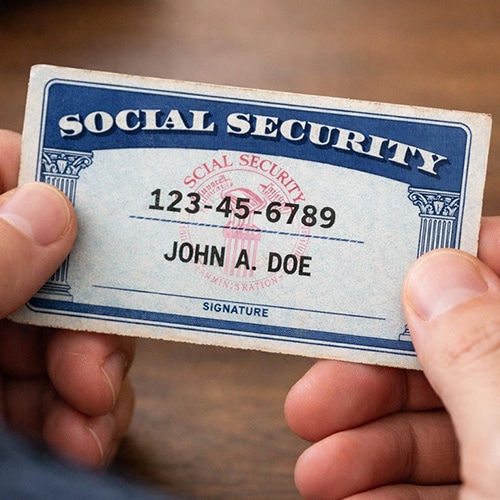Ever wondered how long you should keep your tax records? Is it three years? Seven? For your entire lifetime? Can you maybe finally clear out that filing cabinet that’s bursting at the seams?
Well, beyond just a cluttered filing cabinet, there are real risks in not keeping your financial records in order. From audits to identity theft, the stakes are higher than you might think. Let’s take a look at everything from the basic retention rules to how to protect your sensitive information.
The basics of tax record keeping
Tax records encompass all the documents that support items of income, deductions, or credits shown on your tax return. They are crucial for verifying your tax filings and can include receipts, bills, invoices, mileage logs, and bank statements. Keeping these records is essential not just for potential audits but also for tracking your financial history.
The general advice from tax authorities is to keep your records for at least three years from the date you filed your original return. However, this can vary based on different circumstances, which we cover in the next section.
Understanding exceptions to the rules
While the three-year rule covers many situations, there are exceptions. For instance, if you've underreported your income by more than 25%, the IRS may look back six years. And if you’ve filed a fraudulent return, there is no statute of limitations.
Understanding these nuances ensures you're not caught off-guard, so here’s a comprehensive list of some of the times you might need your records for longer than three years.
- Underreported income: If you have underreported your gross income by more than 25%, the IRS recommends keeping your records for up to six years from the date you filed the return.
- Fraudulent returns: In the case of filing a fraudulent return or if no return was filed at all, there is no statute of limitations. This means records should be kept indefinitely.
- Bad debt deduction: If you claim a deduction for bad debt, keep your records for seven years.
- Securities and properties: For records related to losses from worthless securities or deduction of the depreciation of property, maintain your records for seven years after filing the relevant claim.
- Employment tax records: It is recommended to keep any forms related to employment taxes for at least four years after the date that the tax becomes due or is paid, whichever is later.
- Assets: For records pertaining to the purchase or improvement of assets, keep them for as long as you own the asset, plus an additional three years (for a total of seven years after you’ve disposed of the asset and reported the transaction on your tax return).
- Foreign income or assets: There might be different requirements for how long to keep records depending on what countries your assets are held in. The period often exceeds the standard three years, especially if you're required to report foreign assets over a certain threshold.
- IRA contributions: Keep records of your IRA contributions indefinitely. If you made a nondeductible contribution to an IRA, you’ll need proof of this when you withdraw the money to ensure you're not taxed again on the same funds.
- Gift tax: If you've filed a gift tax return, keep documentation indefinitely, as this can affect estate taxation and future financial planning.
- Home purchase or improvement: Keep records related to home purchases or improvements for as long as you own the property, plus seven years after you sell or dispose of it.
- Insurance and disaster claims: In the event of insurance claims or casualty losses due to disasters, keep related tax records for seven years, as these can affect future tax filings and claims.
- Special tax credits or deductions: If you claim special tax credits or deductions, check the specific requirements for those items, as they may have different record retention guidelines.
Keeping your tax records safe
When it comes to securing your digital tax records, taking proactive steps is crucial. Use the following checklist to ensure your digital documents are protected:
1. Secure storage solutions:
- Utilize encrypted digital storage solutions for your tax records.
- Opt for cloud storage providers with strong security measures.
- Maintain backups of your records in different locations (e.g., external hard drives, secure cloud services).
2. Strong password practices:
- Create unique, complex passwords for each of your accounts.
- Use a reputable password manager to keep track of your passwords securely.
- Change your passwords regularly, especially for your financial accounts and email.
3. Two-factor authentication (2FA):
- Enable 2FA on all accounts that offer it, especially those used for email, cloud storage, and financial services.
4. Regular software updates:
- Keep your operating system and all software up to date to protect against vulnerabilities.
- Ensure your antivirus and anti-malware software are current and run regular scans.
5. Secure internet connections:
- Avoid accessing sensitive information over public wifi networks.
- ·Use a trusted VPN (Virtual Private Network) when accessing your financial information on public or unsecured networks.
6. Phishing and scam awareness:
- Be vigilant about phishing emails or messages; never click on suspicious links or attachments.
- Verify the authenticity of any communication claiming to be from the IRS or financial institutions.
7. Document access and sharing:
- Limit access to your tax records to only those who absolutely need it.
- Avoid sending sensitive documents via unsecured email or messaging platforms.
8. Data encryption:
- Encrypt sensitive files and emails containing personal or financial information.
- Use encrypted USB drives if you need to transfer sensitive data physically.
9. Regular data audits:
- Periodically review your stored tax records to remove or archive older documents not needed for current tax years.
- Ensure that your backup systems are working correctly by performing regular checks.
10. Emergency plan:
- Have a clear plan in place for what to do if your digital information is compromised.
- Know whom to contact if sensitive information is exposed, such as your bank, the IRS, and credit monitoring services.
And, finally, for physical documents, a locked filing cabinet or fireproof safe can protect against theft and damage. Remember, these documents contain sensitive information that could be valuable to identity thieves.
Once you're sure you no longer need your tax documents, don't just toss them in the trash. Shred physical records to prevent any chance of identity theft. For digital files, use software to permanently delete the files, ensuring they can't be recovered.
Special considerations for business-owners and freelancers
If you run a business or freelance, your recordkeeping needs might differ. Typically, you'll need to keep your documents for longer, as they can affect not just your taxes but also employee records, contracts, and business asset information.
Good recordkeeping is not just about compliance; it's about protecting your business. Detailed records can provide insights into your business performance and help you plan for the future. They're also invaluable in the event of an audit.
Keeping tax records might not be the most exciting task, but it's a vital part of managing your finances. By understanding the rules and setting up a system that works for you, you can save yourself a lot of headaches down the line. So take a moment to review your current practices and make any needed adjustments.
Editor’s note: Our articles provide educational information. LifeLock offerings may not cover or protect against every type of crime, fraud, or threat we write about.
Start your protection,
enroll in minutes.
LifeLock is part of Gen – a global company with a family of trusted brands.
Copyright © 2026 Gen Digital Inc. All rights reserved. Gen trademarks or registered trademarks are property of Gen Digital Inc. or its affiliates. Firefox is a trademark of Mozilla Foundation. Android, Google Chrome, Google Play and the Google Play logo are trademarks of Google, LLC. Mac, iPhone, iPad, Apple and the Apple logo are trademarks of Apple Inc., registered in the U.S. and other countries. App Store is a service mark of Apple Inc. Alexa and all related logos are trademarks of Amazon.com, Inc. or its affiliates. Microsoft and the Window logo are trademarks of Microsoft Corporation in the U.S. and other countries. The Android robot is reproduced or modified from work created and shared by Google and used according to terms described in the Creative Commons 3.0 Attribution License. Other names may be trademarks of their respective owners.





